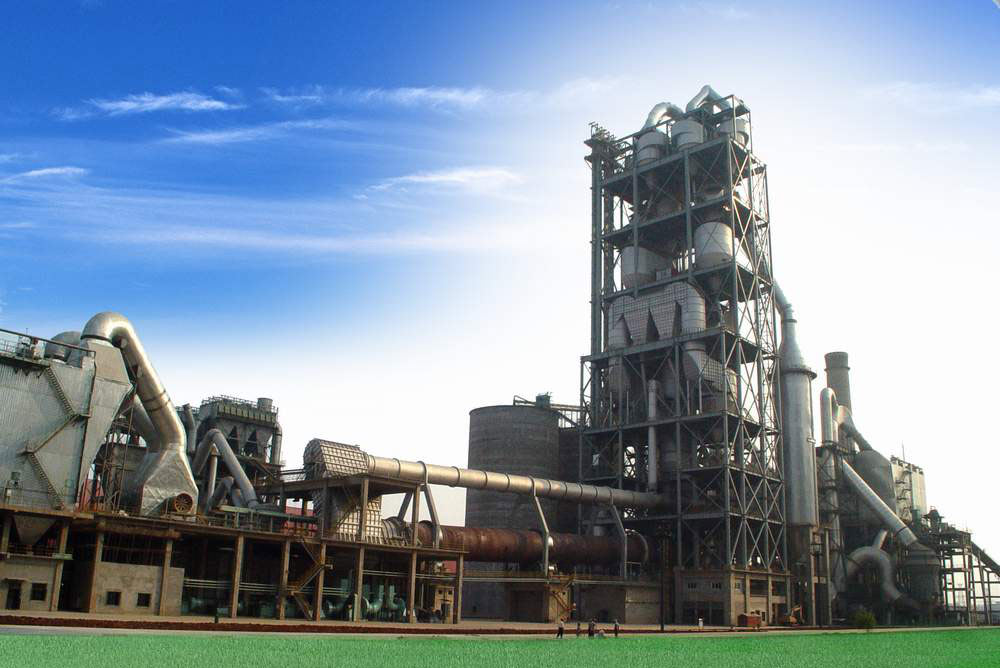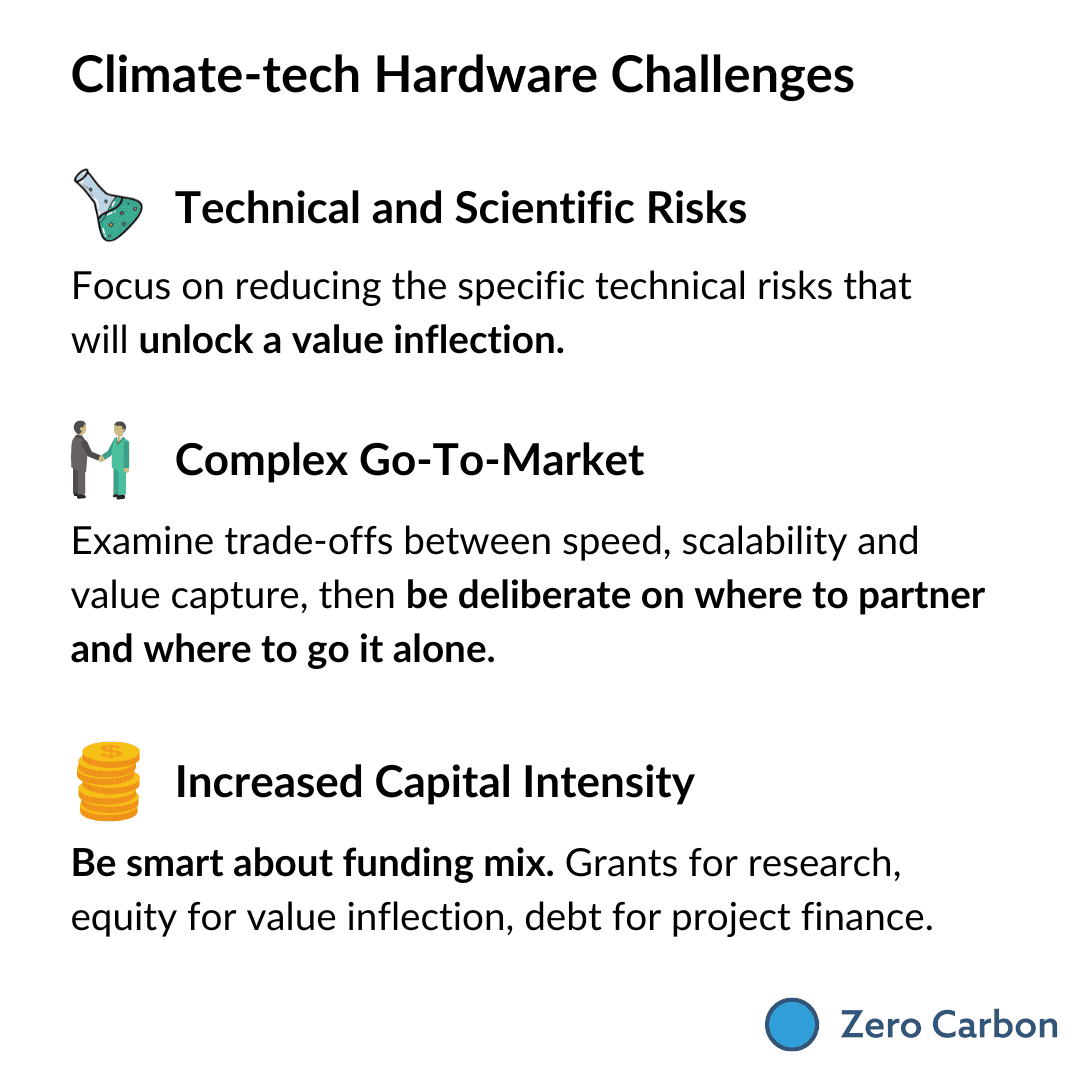The Imperative of Investing in Hard Tech.
Editor’s Note: This is the concluding article in a three-part series discussing the why, what, and how of our investment thesis at Zero Carbon Capital. In our journey through the series, we've explored the urgent need for deep decarbonisation and our strategic approach to investing in the innovators driving this change. Now, we turn our focus to the crucial role of hard tech in overcoming the climate crisis, the inherent challenges of scaling such technologies, and why, despite these hurdles, they represent a compelling investment opportunity.
The Necessity of Hard Tech in the Climate Equation
The climate crisis is fundamentally a physical problem. It stems from excessive greenhouse gas emissions, born of our industrial, agricultural, and everyday activities, permeating the atmosphere. To confront this crisis, we must rethink and redesign the very fabric of our society—from the way we produce materials like steel and cement, to how we generate energy and grow our food. Hard tech, with its capacity to transform these physical processes at their core, is not just part of the solution; it is the solution. That’s why we’ve always had a focus on hard tech, from our original angel-investments in the USA to our latest fund here in Europe.

You can't replace a cement plant with a computer program.
Navigating the Challenges of Hard Tech Growth
Investing in hard tech, particularly in the realm of climate solutions, presents unique challenges distinct from those encountered in more capital-light domains, such as software. These challenges include:
Technical and scientific risks: The path from a promising lab discovery to a scalable, commercially viable technology is fraught with uncertainties. Each step forward requires overcoming technical hurdles, some of which may not have been anticipated.
Market adoption: Introducing new technologies, especially those that disrupt established industries, can face significant market resistance. Overcoming this inertia requires not just technological superiority but also strategic partnerships and regulatory navigation.
Capital intensity: Hard tech startups often face higher initial capital requirements to reach scale. This includes costs associated with R&D, pilot projects, and scaling manufacturing capabilities.
We approach these three challenges alongside our portfolio companies and investors and aim to address them with three mitigating activities.
Focussed risk reduction: One of the key areas for us when working with any company is to identify how much of their burn rate is dedicated explicitly to reducing the specific technical risks of their technology that will unlock a value inflection and opportunity to raise more money with less dilution. Too often, in hard tech startups, we see teams locked into an equipment scale roadmap where a huge proportion of invested capital is being spent on the risk-free part of the scale-up and only a small amount on the part of the project that might cause absolute failure. Sometimes building the next size up is the risk that needs addressing, but more commonly better results in a prototype are better for the company than average results in a pilot.
Strategic go-to-market approach: It’s important to recognise that not every hard tech company needs to—or should—become a full-scale manufacturer. The key is to understand the trade-offs between speed, scalability and value capture in the company’s market; then explore all the options from manufacturing to licensing and whether to go it alone, partner, or form joint ventures. The right choices here (and a willingness to be nimble in the face of new information and opportunities) can significantly accelerate a company’s progress.
Early-stage value creation: The value-creation lifecycle of a hard tech business is quite different to that of an easily scalable software business. At the earliest stages, the mitigation of key scientific risks and delivery of real world proof of concepts creates significant value. At the next stage demonstrating a willing market and viable sales strategy can create even more. This is great for equity investors like us. But as the company scales from there, the returns are more directly correlated to the investment (e.g. in opening a new manufacturing facility) and more aligned with debt investors like project finance which can get a consistent return. Investing at the earliest stage, whilst carrying the highest risk, also exposes us and our investors to the largest value inflections and positions us to be able to hand the reins to bigger pools of capital at the later stages of roll out.

A Compelling Investment Opportunity
Our belief in hard tech's pivotal role in decarbonisation is not just grounded in its potential to mitigate climate change. It also rests on the conviction that these technologies represent a profound investment opportunity. The transition to a carbon-neutral economy is not only an environmental necessity but also a generator of significant economic value. Companies that lead this transformation will drive the next wave of industrial innovation, creating new markets and redefining existing ones.
The success stories of some of the companies in our angel portfolio, such as the landmark Series B funding round secured by Lilac Solutions, led by T Rowe Price, underscore the growing recognition among later-stage purely-financial investors of the critical importance and financial viability of hard tech solutions. These developments affirm our thesis that while the path may be challenging, the rewards—both environmental and financial—are immense.
Conclusion: The Time is Now
The race to decarbonise is not just a challenge; it's an imperative. As we stand at the precipice of a new industrial revolution, powered by hard tech innovations, the stakes could not be higher.
The climate crisis demands action, and hard tech offers a beacon of hope. At Zero Carbon Capital, we are committed to supporting the brilliant minds and groundbreaking technologies at the forefront of this charge. By investing in hard tech, we are not just betting on technology; we are investing in the future of our planet.
The journey ahead is complex and fraught with challenges, but the path is clear. Through strategic investments, unwavering support for our portfolio companies, and a deep-seated belief in the transformative power of hard science, we are paving the way toward a decarbonised world—one investment at a time. Together, we can redefine the possible and build a sustainable future for generations to come.